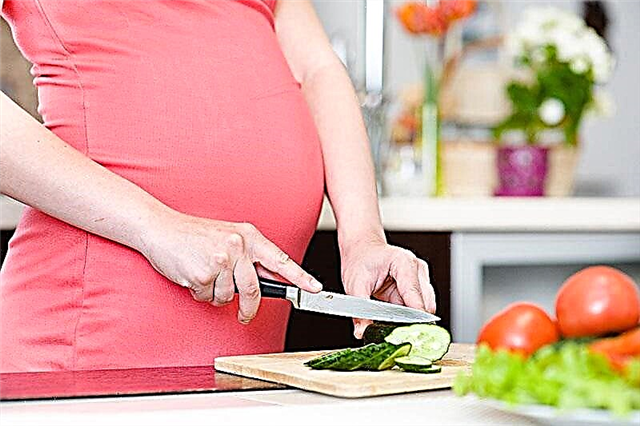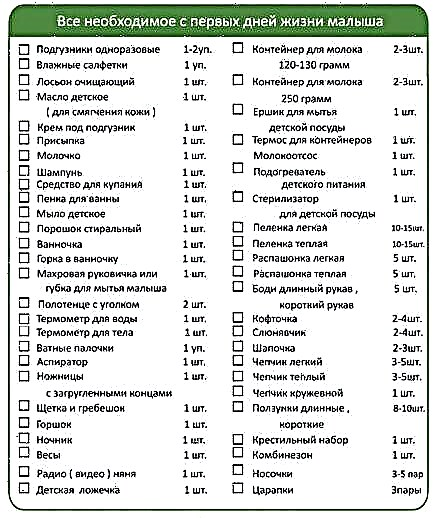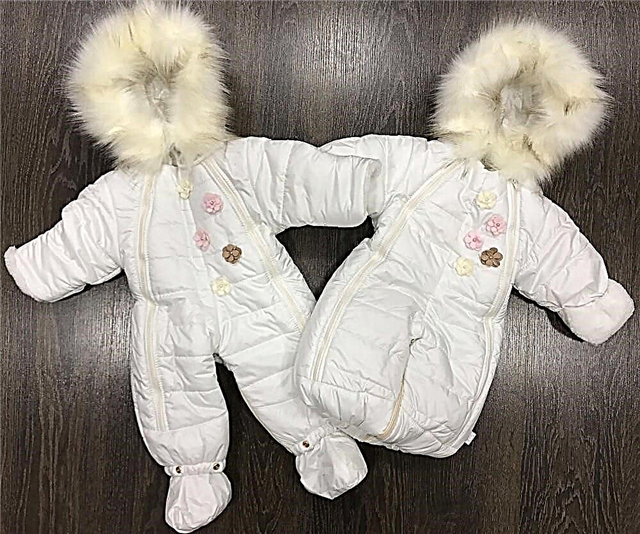
Caring parents always try to equip a home or travel first aid kit with remedies for flu, ARVI and colds for a child. Indeed, sometimes the illness catches by surprise - on weekends, but at night, away from home. And I want to have the most necessary drugs at hand that will not harm the baby and alleviate his condition before the doctor arrives. In this article, we will look at what funds should be included in the first aid kit and when they should be given.

Influenza, colds and SARS - what do they have in common?
It is popularly accepted to call a common cold nothing more than a variety of viral diseases. SARS and flu are also viral infections. The difference between them is that they are caused by different pathogenic viruses. It can be not only influenza virus, but also adenovirus infection, rhinovirus, respiratory syncytial infection, parainfluenza virus. In total, there are more than 300 viruses that can "visit" your child, and it is not possible to determine which virus exactly caused unpleasant symptoms at home.
Various disease viruses have a lot in common in their symptoms. As a rule, the disease in a child always proceeds exclusively in an acute form. It begins with a rise in high temperature, the appearance of respiratory catarrhal symptoms - dry and unproductive cough, runny nose, sometimes - rhinorrhea (nasal flow), headache, muscle aches, chills.
The virus in the child's body "rages" from 3-5 to 7 days, depending on the type of virus, and then immunity, by developing specific antibodies to the pathogen, takes over, the disease recedes.

Surprisingly, with or without drugs, the virus in a child's body will live exactly as long as it is able to live... Immunity will cope with it anyway. However, some drugs will help the child's body cope with the disease more easily, as well as prevent serious complications that all viral infections, especially influenza, are fraught with.
General principles of treatment
Before going to the pharmacy to choose drugs, you should clearly understand what and why they are being treated for flu or ARVI. There is no universal cure for viral ailments. The exception is some very few antiviral drugs that have a destructive effect exclusively on the influenza virus.
Since there is no cure for the virus, drugs for ARVI are prescribed for symptomatic treatment in order to facilitate the course of the disease in anticipation of a completely natural self-recovery. If a child suddenly falls ill, parents should take the right steps from the first minutes to recover - to provide him with bed rest in a cool and well-ventilated room, plenty of warm drinks, light clothing so that the baby does not sweat.
You should call a doctor, and if the child is not a year old, then an ambulance.

Only a doctor should make a decision on what medicines to treat a child, but parents can simplify the doctor's task by having medicines in their home medicine cabinet for any "cold" case. The called specialist, of course, will appreciate the efforts and prescribe a treatment regimen from what is already available. In addition, many drugs can be useful at the pre-medical stage.
There are two major dangers to viral infections - high fever and dehydration. A fever above 38.5 degrees for children under 3 years of age and over 40 degrees for older children can lead to the development of febrile seizures in babies, hyperthermia, the development of renal failure, as well as heart problems and impaired blood vessel integrity.
Intoxication in the child's body is caused by the penetration of the virus into the bloodstream. This can manifest itself in different ways. Most often - severe pain in muscles and joints, often also vomiting and diarrhea against a background of high temperature. And therein lies the second danger - dehydration. The younger the child, the faster he loses his fluid reserves, the bill can go on for hours.
It is to prevent dehydration and overheating that the main treatment for influenza, SARS and all types of viral infections will be directed, which are popularly called "colds".

Preparations for symptomatic treatment and first aid
Depending on these or those symptoms, the degree of their severity, all drugs should be conditionally divided into several large groups. So it will be easier for parents to navigate what and when the child may need.
From temperature
The temperature for a viral illness is necessary for a child so that the immune system can quickly develop antibodies to the virus. But if the thermometer has risen to 39 degrees, and in children under 3 years old - 38 degrees, you need to start taking antipyretic drugs. This group of cold and flu medicines should always be on hand. Most often, the temperature rises in children at night, and not everyone will be able to go to the pharmacy on duty.
Choosing among the great variety of antipyretic drugs, you should focus on drugs that contain paracetamol... It is this substance that is considered the safest and most effective for children. From the age of 16, you can also take drugs based on acetylsalicylic acid (for example, one of the forms of "Aspirin").
But acetylsalicylic acid is categorically contraindicated for children. It can kill a child due to severe liver damage (Reye's or Reye's syndrome).


So, paracetamol-based drugs should be purchased in a pharmacy for a child under 16 years old. For a kid from 2-3 years old, a remedy in syrup - "Panadol", "Nurofen" is suitable.
Newborns and children under one year old can be given rectal suppositories (suppositories) - "Paracetamol", "Tsefekon D". Children from 7-8 years old can be offered "Paracetamol" in tablets. An effective cure for fever for colds and flu is Ibuprofen. This drug belongs to the group of non-steroidal anti-inflammatory drugs. The medicine costs a mere penny, so get it and keep it in your medicine cabinet just in case.
The medicine in an age-specific dosage (indicated in the instructions for use) can be given to a child if the temperature is difficult to lower with paracetamol drugs.
From a cold
If the baby's disease is accompanied by a runny nose (running snot), nothing is required to drip or smear into the nose. Rhinorrhea is a defense mechanism that allows the mucous membranes of the upper respiratory tract to partially get rid of the virus that has penetrated into them. On the contrary, you should rinse your nose, irrigate it abundantly with saline solution or preparations based on sea water, for example, "Aquamaris".


If the snot has become thicker, nasal breathing is very difficult, vasoconstrictor drugs - "Nazivin", "Nazol", will come to the aid of parents, children's forms of these drugs - "Nazivin Sensitiv" and "Nazol Baby" are suitable for babies. One drop in each nostril is enough to restore nasal breathing for several hours.
In no case should you abuse these drops, because vasoconstrictor drugs contribute to the development of persistent drug addiction. More than 4-5 days in a row, vasoconstrictor nasal drops cannot be used.
If the snot has become not just thick, but also saturated yellow, green with a foul smell, you should immediately call a doctor, since such discharge from the nose is a sign of an attached bacterial infection. The child needs antibiotic drops prescribed by the doctor. They will be available at the pharmacy with a doctor's prescription.

Against cough
The onset of viral diseases is characterized by a dry cough. The task of the parents is to quickly and effectively contribute to the liquefaction of sputum so that the cough becomes wet and productive. Therefore, the child, in addition to plentiful warm drink, is given mucolytic drugs - "Mukaltin", "Codelak Broncho", "Lazolvan". Most of these drugs are produced in convenient forms - in the form of syrups with a pleasant fruity smell and taste.
As soon as sputum begins to form and the cough becomes wet, the child should not be given antitussives, which suppress the work of the cough center in the brain. He needs to cough so that phlegm does not stagnate in the bronchi, so that inflammation of the upper and lower respiratory tract does not occur.
From vomiting and diarrhea, from intoxication
If a viral illness in a child proceeds with symptoms of intoxication, it is important to water him with liquid at room temperature as much as possible. This will help keep you hydrated. True, the water-salt balance lost with vomiting or diarrhea alone cannot be restored. Therefore, the first-aid kit should contain means for oral rehydration - "Smecta", "Humana Electrolyte", "Regidron".


These dry mixtures are packaged in sachets, they are easy to dissolve in the amount of water required according to the instructions and give this mixture to the child in large quantities. If you can't get drunk, you should call an ambulance. Doctors will hospitalize the baby and will administer intravenous rehydration agents.
Enterosorbents - Enterosgel, Enterol - will help the child with diarrhea and vomiting. The use of antiemetic and antidiarrheal agents of direct action without the recommendation of a doctor in childhood is prohibited.
For conjunctivitis
When the ailment is accompanied by conjunctivitis, one cannot do without consulting a doctor, because the inflammation of the mucous membrane of the eyes can be viral, bacterial and even allergic. The real reason must be determined by experts. In the home first-aid kit, you can have drops "Tobrex", "Ciprofloxacin" or "Oftalmoferon".
Antiviral drugs
Unfortunately, most of the drugs that parents see advertised on TV are not considered effective for flu, colds and SARS. The fact is that they do not have clinically proven efficacy, besides, most of the drugs (Viferon, Otsillokotsinum, Anaferon for children, Ergoferon and others) belong to the group of homeopathic medicines.

This means that at best they contain only a few molecules of the active substance, which are clearly not enough to defeat the virus. Only a few flu drugs have proven efficacy - Tamiflu (do not confuse with Teraflu), Oseltamivir. These funds should be used strictly according to the doctor's indications, since they have a lot of side effects that may be more dangerous than the influenza virus itself. Such anti-influenza drugs are most often used to treat children in an infectious diseases hospital, where the child is under round-the-clock medical supervision.
Doctors will prescribe antiviral drugs, even homeopathic ones, not because they will definitely help the child, but because the parents demand that they be prescribed something. And 99% of antiviral agents will not harm at least. The rest - will make its own immunity. And after five days of taking Anaferon, no parent will say that the child has recovered himself. He will have a persistent illusion that it was Anaferon that helped the baby recover.
Therefore, you may not have antiviral agents in your home medicine cabinet. Considering that they are not cheap and have no efficiency at all. With folk remedies (if they are reasonable and correct) and symptomatic treatment, parents will be able to achieve exactly the same result, in exactly the same time frame as taking expensive, "good" antiviral drugs.


Preparations for prevention
There are no drugs for the prevention of viral diseases. Vaccinations are carried out against influenza, it should not be neglected. Taking antivirals to prevent colds is a waste of money. The likelihood of getting sick does not depend on how much "Anaferon" the mother "fed" the child from the beginning of autumn.
The doctors' comments in this regard are unanimous - strong immunity and hardening, vitamins and proper nutrition, as well as preventive measures will help.


For information on how to treat ARVI in children, see the following video from Dr. Komarovsky.



